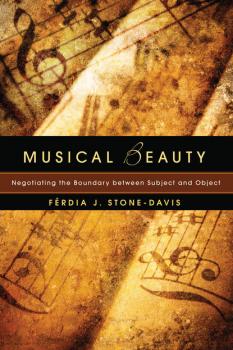ТОП просматриваемых книг сайта:
Férdia J. Stone-Davis
Список книг автора Férdia J. Stone-DavisАннотация
This book offers an important new perspective on the Western tradition of musical aesthetics through an examination of Anicius Boethius and Immanuel Kant. Within the trajectory illuminated by these two thinkers, musical meaning is framed by and formed through the concept of beauty–a concept which is shaped by prior understandings about notions of the self and the world. Beauty opens up a space within which the boundary between the self and the world, subject and object, is negotiated and configured. In doing so, either the subject or the object is asserted to the detriment of the other, and to the physicality of music. This book asserts that the uniqueness of music's ontology emerges from its basis in sound and embodied practice. It suggests that musical beauty is generated by the mutuality of subject and object arising within the participation that music encourages, one which involves an ekstatic mode of attention on the part of the subject.

